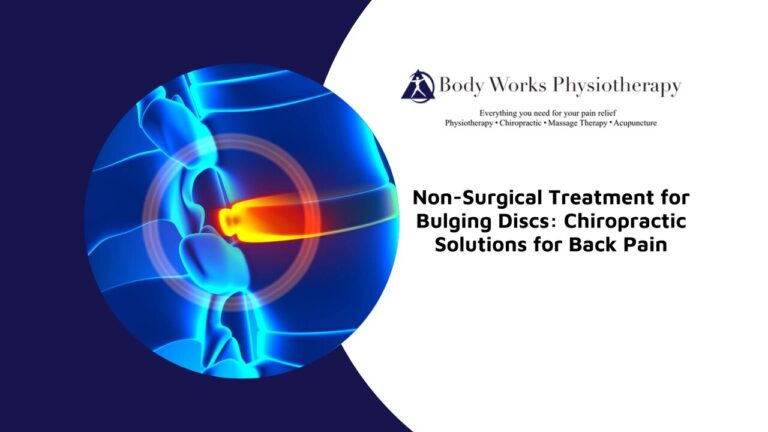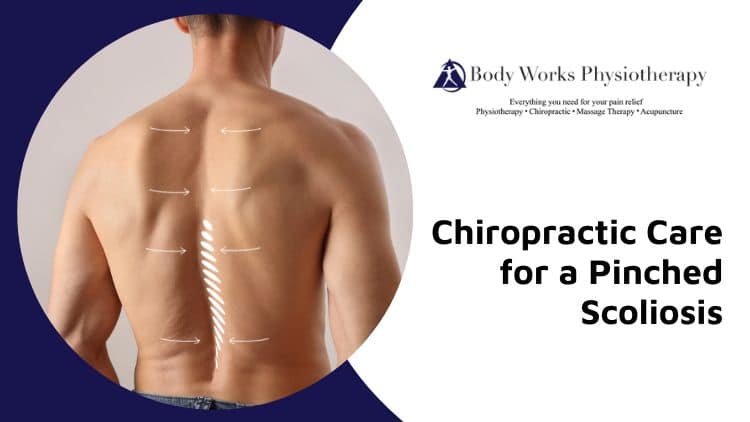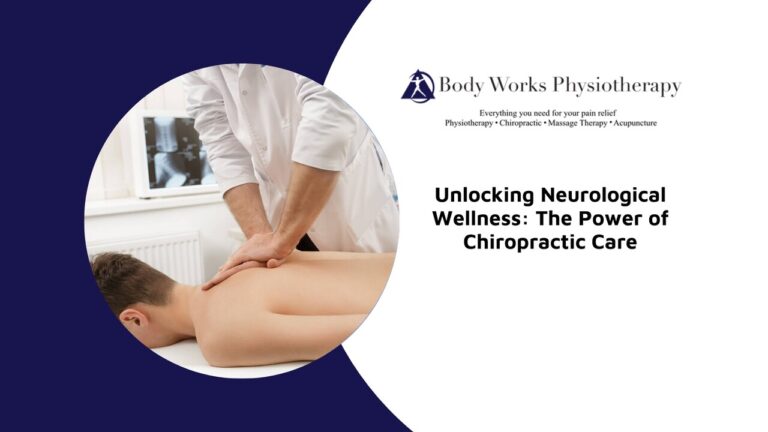
Do you struggle with pinched nerve pain? You’re not alone. In fact, it’s a problem that affects many people around the world. But the good news is that there are simple, effective solutions to help you overcome this challenging condition. In this post, we’ll show you how to manage and treat pinched nerve pain with chiropractic care!
Understanding Pinched Nerve
A pinched nerve occurs when there is too much pressure on a nerve by surrounding tissues such as bones, cartilage, muscles, or tendons. This pressure can cause nerve pain, numbness, tingling, or muscle weakness.
Common causes include a herniated disc, improper joint function, or poor posture. Pinched nerves can affect various parts of the body, including the lower back, neck, and even the arms or legs.
Pinched nerve pain can affect anyone, but certain factors may increase the risk. Understanding these risk factors can help in both prevention and early intervention.
- Age-Related Risks: As we age, spinal discs degenerate and lose flexibility, increasing the likelihood of conditions like herniated discs or spinal stenosis, which can lead to pinched nerves. Older adults are more susceptible due to natural wear and tear.
- Occupational Hazards: Jobs involving repetitive motions, heavy lifting, or prolonged sitting or standing can contribute to pinched nerves. Occupations such as assembly line work, construction, and desk jobs pose higher risks due to constant strain.
- Lifestyle Factors: Poor posture, whether sitting or standing, and a sedentary lifestyle can increase the risk. Weakened muscles from inactivity are less capable of supporting the spine, making it prone to issues and nerve compression.
- Health Conditions: Obesity adds extra pressure on the spine and nerves, increasing the risk of nerve compression. Conditions like diabetes can lead to nerve damage, making nerves more vulnerable to being pinched.
- Sports and Physical Activities: High-impact sports or activities involving repetitive movements can increase the risk of a pinched nerve. Athletes, especially in weightlifting, gymnastics, or contact sports, may experience pinched nerves due to intense physical demands and potential for injury.
How Chiropractors Address Pinched Nerves
Visiting a chiropractor can be highly beneficial for treating a pinched nerve. Chiropractic care focuses on assessing and treating musculoskeletal issues, including pinched nerves. A chiropractor can help relieve the pressure on the nerve through various techniques.
- Initial Assessment: A chiropractor will perform a thorough examination to determine the exact cause of the pinched nerve. This includes a detailed medical history review and physical assessment.
- Joint Mobilization: Chiropractors may use joint manipulation to correct improper function and reduce compression on the affected nerve.
- Soft Tissue Techniques: Additionally, they might employ soft tissue techniques to reduce inflammation and improve posture. Methods such as massage therapy can be very effective in relieving pain and discomfort associated with nerve pain.
- Acupuncture: This involves inserting fine needles into specific points to improve nerve function and reduce pain. Chiropractors can use acupuncture to help relieve pinched nerve symptoms.
- Additional Treatment and Advice: A comprehensive treatment plan could include exercises and lifestyle advice to prevent future occurrences and support the recovery process. Your chiropractor can give you various ergonomic tips and strengthening exercises to help you recover faster.
By addressing the root cause of the nerve compression, chiropractic treatment can effectively alleviate pinched nerve pain.
Pinched Nerve Treatment: Massage vs. Chiropractic Care
Both massage and chiropractic care can be effective for treating a pinched nerve, but they serve different purposes.
Chiropractic care focuses on correcting joint function and reducing pressure on the nerve, addressing the root cause of the problem. Chiropractors use techniques like manual manipulation to improve joint function. These not only relieve nerve compression but also improve overall spinal health and function. Regular chiropractic care can help prevent future episodes of nerve compression by maintaining proper joint function.
On the other hand, massage therapy can help reduce muscle tension and improve blood flow to the affected area, which can provide temporary relief from pinched nerve pain. Massage techniques such as deep tissue massage target the soft tissues around the nerve, alleviating tightness and promoting relaxation. By improving circulation, massage therapy aids in the delivery of nutrients and oxygen to the injured area, facilitating the healing process and reducing inflammation.
For long-term results, combining both treatments might be the most beneficial approach. Integrating chiropractic care and massage therapy can offer a comprehensive solution that addresses both the structural and muscular aspects of a pinched nerve.
Signs That a Nerve is Healing
As a pinched nerve begins to heal, you might notice various signs that indicate the treatment is working:
- Improved Muscle Strength: One positive sign is improved muscle strength. As the nerve heals, it can better communicate with the muscles it controls, leading to a gradual restoration of muscle function and strength. This improvement can be observed in increased stability, better grip strength, and enhanced coordination in the affected area.
- Decreased Shooting Pain: Decreased shooting pain or a reduction in the frequency and intensity of sharp, radiating pain is also a sign of healing. This type of pain often diminishes as the nerve recovers and the surrounding tissues return to their normal state.
- Return of Sensation: The return of normal sensation in the previously affected area is another key indicator. As the nerve heals, sensations such as touch, temperature, and pressure gradually normalize, replacing feelings of numbness or tingling with more typical sensory feedback.
- Reduced Inflammation: A decrease in swelling and inflammation around the nerve can also signal healing. Reduced inflammation often leads to less pain and discomfort, contributing to the overall sense of recovery.
- Better Range of Motion: As the nerve heals and muscle function improves, you may notice a better range of motion in the affected area. Activities that were once painful or difficult may become easier, indicating progress in the healing process.
It’s important to continue following your chiropractor’s treatment plan to support the healing process. Patience is key, as nerves heal slowly, and complete recovery can take several weeks to months.
How Long Does It Take for a Pinched Nerve to Heal With Chiropractic Care?
The healing time for a pinched nerve varies depending on the severity of the condition and the individual’s overall health. With regular chiropractic care, many individuals experience significant improvement within a few weeks.
However, some cases may take longer, especially if there are underlying issues like a herniated disc or severe musculoskeletal misalignments. Adhering to the chiropractor’s treatment plan and following recommended exercises can expedite recovery.
Don’t Let Pinched Nerve Pain Hold You Back Any Longer
Understanding and effectively treating a pinched nerve involves recognizing the symptoms, seeking appropriate care, and following a dedicated treatment plan. Whether you’re dealing with a pinched nerve in the neck, lower back, or other parts of the body, a chiropractor can help relieve nerve pain and facilitate the recovery process.
At Body Works Physiotherapy, our experienced Scarborough chiropractors are dedicated to helping you overcome pinched nerve pain and regain your quality of life. We understand the complexities of nerve pain and tailor our treatments to meet your specific needs. Book your appointment today and take the first step towards a pain-free life.




